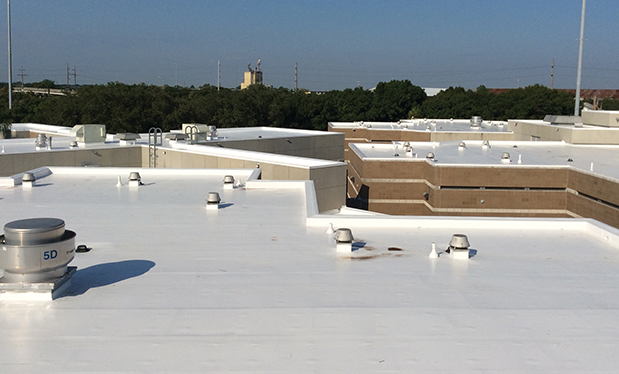This month, more than 100 NRCA members will travel to Washington, D.C., for NRCA's Fall Committee Meetings and Legislative Conference Oct. 17-20. The event will provide members opportunities to meet with their senators and representatives on Capitol Hill to advocate for NRCA's government affairs priorities, including regulatory reform, workforce development and tax reform.
Minimizing the regulatory burden
One key issue NRCA members will support is enacting legislation to provide relief from burdensome government regulations. As a result of proliferation of new regulations from the federal government, enactment of regulatory reform has been an NRCA priority for many years. Although the Trump administration generally is less aggressive in pursuing new regulations than the Obama administration, now is the time to reform the regulatory process so regulatory burdens can be minimized regardless of which party controls the executive branch.
Although numerous regulatory reform bills have been introduced in Congress, NRCA's primary focus is passage of the Regulatory Accountability Act (RAA) (H.R. 5). The RAA is designed to reform the process under which federal agencies develop regulations to minimize adverse effects on employers and the economy. The RAA would accomplish this by overhauling the Administrative Procedure Act, the federal law that governs the process by which agencies write regulations, which has not been updated for more than 70 years.
Among other reforms, the RAA would require federal agencies to choose the lowest cost rulemaking alternative that meets statutory objectives, improve agency fact-finding processes and cost-benefit analyses, increase opportunities for public input before regulations are proposed, and strengthen judicial review standards for new regulations.
NRCA believes these reforms would enhance the ability of stakeholders to more effectively influence the regulatory process and mitigate burdens on employers.
The RAA was approved by the House in January. A similar version of the bill (S. 951) was introduced in the Senate by Sens. Rob Portman (R-Ohio) and Heidi Heitkamp (D-N.D.) and has been approved by a Senate committee. At least eight Democrats will need to join the 52 Republican senators to reach the 60-vote threshold required for the bill to gain passage. NRCA members visiting the capitol will try to help achieve this goal.
Advancing education
NRCA members also will advocate for Congress to address the industry's workforce development needs by improving career and technical education (CTE). In June, the House approved the Strengthening Career and Technical Education for the 21st Century Act (H.R. 2353). The legislation was introduced by Reps. Glenn Thompson (R-Pa.) and Raja Krishnamoorthi (D-Ill.) to reform and reauthorize CTE programs operated under the Perkins Career and Technical Education Act of 2006, which provides more than $1 billion annually for CTE programs operating at state and local levels. NRCA believes more effective CTE programs are vital to the roofing industry's long-term prosperity.
H.R. 2353 is designed to provide new opportunities for employers to collaborate with educational institutions to develop CTE programs that would achieve employers' workforce needs. The House already has approved the bipartisan legislation; NRCA members will urge their senators to follow suit so the legislation can be signed into law by President Trump.
Initiating tax reform
Tax reform legislation that would benefit the roofing industry is another key issue NRCA members support.
Many roofing companies currently face federal tax rates as high as 39.6 percent on income that often is the only source of capital for business reinvestment. Roofing industry entrepreneurs also have been affected during recent years by effective tax increases, such as the phasing out of personal exemptions, itemized deduction limitations and increases in capital gains and dividends rates, and other new taxes.
NRCA has long advocated for tax reform that would help boost economic growth by lowering tax rates and simplifying the tax code. NRCA's priorities for tax reform include lowering tax rates for all types of businesses (C corporations and pass-through businesses), reforming the outdated depreciation schedule for commercial roofs and repealing the estate and alternative minimum taxes. Reforms of this nature would incentivize greater levels of investment in the industry. NRCA looks forward to working with the tax-writing committees in Congress as they start drafting tax reform legislation this fall.
Speak up
NRCA's Fall Committee Meetings and Legislative Conference is a great opportunity for all NRCA members to take the roofing industry's message regarding regulatory reform, workforce development and tax reform directly to lawmakers on Capitol Hill.
Those NRCA members who cannot attend the legislative conference can advocate on behalf of these priority issues by visiting the NRCA Grassroots Advocacy Network at roofingadvocacy.nrca.net or contacting me at the Washington, D.C., office for assistance at (202) 546-7584 or dmusser@nrca.net.
Congress needs to hear from NRCA members regarding government policies that may profoundly affect their businesses.
Duane L. Musser is NRCA's vice president of government relations.



